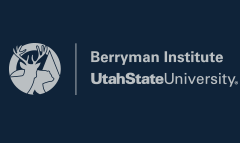Abstract
Master Naturalist programs across the country have reconnected Americans with nature for >20 years. Research suggests that reconnecting humans with nature benefits personal health and wellness, educates stakeholders about the importance of conservation, and enhances individual participation in stewardship efforts. Nationally, the Alliance of Natural Resource Outreach and Service Programs coordinates and supports Master Naturalist programs through facilitating collaboration and sharing of resources, as well as organizing an annual conference. We explore the Virginia Master Naturalist and Utah Master Naturalist programs as 2 examples of different, but highly effective, statewide programs to highlight the diversity of Master Naturalist programs. The Virginia Master Naturalist was created in partnership with 5 state agencies. It is coordinated at a local chapter level, taught entirely in person, and has the primary purpose to train volunteers who support natural resource conservation in the state. The Utah Master Naturalist, in contrast, was created by Utah State University Cooperative Extension. Centrally coordinated at the state level, it is partially taught online and focuses more on connecting a highly urbanized population to the vast natural areas around the state. Master Naturalist programs provide unique opportunities for scientists and resource managers to engage the public and promote stewardship through education, volunteer opportunities, and citizen science. This mutualistic relationship benefits not only the public that learns from experts and participates in real-world management projects, but also the managers who achieve a broader impact of their work and receive valuable volunteer assistance in fulfilling their management goals.
Recommended Citation
Larese-Casanova, Mark and Prysby, Michelle
(2018)
"Engaging People in Nature Stewardship Through Master Naturalist Programs,"
Human–Wildlife Interactions: Vol. 12:
Iss.
2, Article 11.
DOI: https://doi.org/10.26077/eyks-gb93
Available at:
https://digitalcommons.usu.edu/hwi/vol12/iss2/11



